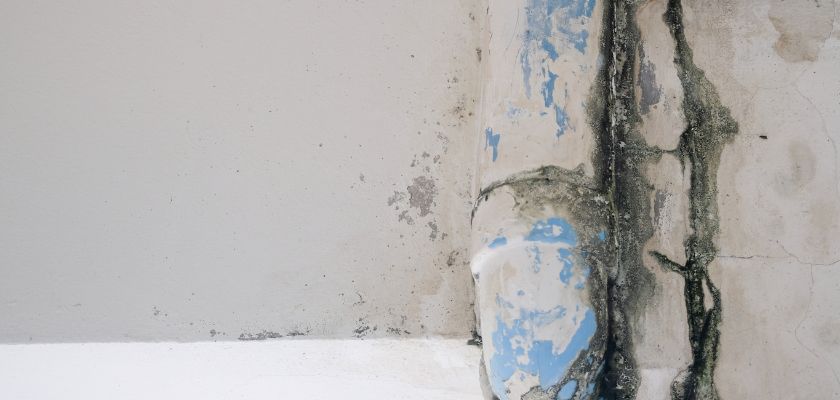Slab leaks are a homeowner’s nightmare, often lurking unnoticed beneath the foundation of a house until significant damage has already occurred. Understanding the dangers of untreated slab leaks is crucial for maintaining the integrity and safety of your home. This article will explore the causes, symptoms, and severe consequences of slab leaks, as well as the importance of timely detection and repair.
Table Of Contents
Understanding Slab Leaks

What Are Slab Leaks?
Slab leaks occur when the water pipes running beneath the concrete foundation of a house develop leaks. These pipes can be part of the home’s plumbing system for delivering fresh water or removing wastewater. Due to their hidden nature, slab leaks can go undetected for long periods, leading to substantial damage.
Common Causes of Slab Leaks
Several factors can cause slab leaks. Corrosion of pipes is a common culprit, particularly in older homes with metal pipes. Shifts in the ground due to earthquakes or soil erosion can also stress pipes, causing them to crack. Additionally, poor construction practices or faulty materials can lead to early pipe failure, resulting in slab leaks.
Types of Slab Leaks
There are generally two types of slab leaks: fresh water leaks and sewer leaks. Fresh water leaks are often easier to detect due to their impact on water pressure and visible signs like damp spots. Sewer leaks, on the other hand, can be more insidious, causing slow but steady damage and often resulting in unpleasant odors.
Identifying Slab Leak Symptoms
Unexplained Increase in Water Bills
One of the first slab leak symptoms that homeowners might notice is an unexplained increase in their water bills. If there is no change in water usage but the bill spikes, it could indicate a leak in the system. Monitoring your water bill closely can help catch a slab leak early.
Damp Spots and Warm Areas on Floors
Damp spots or unusually warm areas on your floor are clear indicators of a slab leak. These spots occur because water escaping from the pipes heats the surrounding concrete, creating noticeable warm patches. Similarly, persistent dampness can indicate water accumulation beneath the slab.
Low Water Pressure
Another common symptom of a slab leak is a noticeable drop in water pressure. If the pressure decreases significantly without any apparent reason, it might be due to a leak in the underground pipes. Consistent low water pressure warrants further investigation to rule out slab leaks.
The Dangers of Ignoring Slab Leaks
Structural Damage to the Foundation
Ignoring slab leak symptoms can lead to severe structural damage to your home’s foundation. Water leaking beneath the slab can erode the soil, causing the foundation to shift and crack. This can result in uneven floors, cracks in walls, and doors and windows that no longer close properly, compromising the structural integrity of your home.
Mold and Mildew Growth
Slab leaks create a moist environment ideal for mold and mildew growth. These fungi can spread rapidly, causing damage to your property and posing health risks to your family. Mold exposure can lead to respiratory problems, allergies, and other health issues, making it essential to address slab leaks promptly.
Increased Repair Costs
The longer a slab leak goes undetected, the more expensive the repairs will be. Untreated leaks can cause extensive damage that requires comprehensive and costly repairs. Early detection and repair of slab leaks can save homeowners significant amounts of money in the long run.
Importance of Professional Slab Leak Detection
Advanced Detection Techniques
Professional slab leak detection services in North Richland Hills use advanced techniques and equipment to locate leaks accurately. These methods include electronic listening devices, infrared cameras, and pressure tests. Employing these techniques ensures that leaks are detected without causing additional damage to your property.
Preventing Further Damage
By hiring a professional slab leak detection service in North Richland Hills, homeowners can prevent further damage to their property. Experts can identify the exact location of the leak and recommend the best course of action for repair. This proactive approach minimizes the risk of extensive damage and costly repairs.
Ensuring Proper Repair
Professional services not only detect leaks but also ensure that repairs are done correctly. They have the expertise and tools to fix the leaks efficiently, restoring the integrity of your home’s plumbing system. Proper repair is crucial for preventing future leaks and maintaining the stability of your home’s foundation.
Preventing Slab Leaks
Regular Plumbing Inspections
One of the best ways to prevent slab leaks is to schedule regular plumbing inspections. A professional plumber can check for signs of wear and tear, corrosion, or other potential issues in your plumbing system. Early detection of problems can prevent them from escalating into major leaks.
Maintaining Stable Soil Conditions
Maintaining stable soil conditions around your home can also help prevent slab leaks. Ensure proper drainage to avoid water accumulation around the foundation, which can cause soil to shift and stress the pipes. Landscaping with plants that have deep roots can also help stabilize the soil.
Using Quality Materials and Proper Installation
Ensuring that your plumbing system is made of high-quality materials and installed correctly is essential for preventing slab leaks. If you’re building a new home or renovating, invest in durable pipes and hire experienced professionals for the installation. Proper installation reduces the risk of future leaks.
Final Wording
Slab leaks pose significant dangers to your home’s foundation and overall structure. Recognizing slab leak symptoms early, such as unexplained increases in water bills, damp spots, and low water pressure, is crucial for preventing extensive damage. Ignoring these signs can lead to severe structural damage, mold growth, and increased repair costs. Hiring a professional slab leak detection service in North Richland Hills is essential for accurate detection and effective repair. Regular plumbing inspections, maintaining stable soil conditions, and using quality materials can help prevent slab leaks. By taking proactive measures, homeowners can protect their investment and ensure their home’s safety and stability.
FAQ’s
What are the most common slab leak symptoms?
The most common slab leak symptoms include unexplained increases in water bills, damp or warm spots on floors, low water pressure, and the sound of running water when no taps are open. Noticing these signs early can help prevent extensive damage.
How do slab leaks affect my home’s foundation?
Slab leaks can cause significant damage to your home’s foundation by eroding the soil beneath it. This erosion can lead to foundation shifting and cracking, resulting in uneven floors, wall cracks, and doors or windows that don’t close properly. Over time, the structural integrity of your home may be compromised.
Can mold and mildew grow from slab leaks?
Yes, slab leaks create a moist environment that is ideal for mold and mildew growth. These fungi can spread rapidly and cause damage to your property, as well as pose health risks to your family. Mold exposure can lead to respiratory problems, allergies, and other health issues, making it crucial to address slab leaks promptly.
Why is professional slab leak detection important?
Professional slab leak detection services use advanced techniques and equipment to accurately locate leaks without causing additional damage to your property. By hiring a professional slab leak detection service in North Richland Hills, you can ensure that leaks are detected and repaired efficiently, preventing further damage and costly repairs.
How often should I have my plumbing inspected to prevent slab leaks?
Regular plumbing inspections are essential for preventing slab leaks. It is recommended to have your plumbing inspected annually by a professional. During these inspections, potential issues such as wear and tear, corrosion, or other problems can be identified and addressed before they escalate into major leaks.
What can I do to prevent slab leaks in my home?
To prevent slab leaks, schedule regular plumbing inspections, maintain stable soil conditions around your home, and ensure proper drainage to avoid water accumulation near the foundation. Additionally, using high-quality materials and proper installation techniques during construction or renovation can reduce the risk of future leaks.







